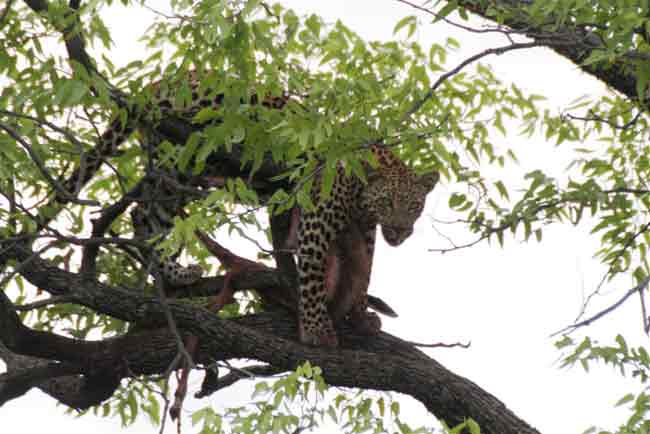Large Predators Prove More Vulnerable to Prey Loss

Despite being the king of the jungle, lions and other large predators are actually more sensitive than smaller carnivores to changes in food abundance, a new study finds.
The finding may help piece together why populations of large carnivores, such as tigers and polar bears, have been declining, and could help guide conservation efforts.
Scientists from the Zoological Society of London and Durham University in the U.K. evaluated nearly 200 populations of 11 different carnivore species ranging in size from the small least weasel and arctic fox, to the larger tiger and polar bear.
They found that comparable and relatively small decreases in prey abundance led to a five- to six-fold greater decrease in the populations of the largest predators compared with the smallest predators. The difference was able to explain nearly 80 percent of the variability between population sizes, the researchers said.
Philip Stephens, a biologist at Durham University and a member of the research team, said he was surprised by the results. "Obviously as prey declines, carnivores will decline. But, the fact that for the same relative decline in abundance for prey of all types of carnivores, you had this massive increase in carnivore decline relative to body size, was quite surprising," he told OurAmazingPlanet.
While some threats to the large carnivores, such as poaching and climate change, are well-known and publicized, the threat of prey declines is almost "more insidious," because "it is less well-recognized," Stephens said.
"By no means would I downplay the importance of these high-profile mechanisms like climate change or poaching, but this is just one more mechanism that is contributing and is less well-recognized," he added.
Get the world’s most fascinating discoveries delivered straight to your inbox.
While the researchers are not exactly sure why the larger predators are more vulnerable, they think it could be because of metabolic costs. As animals increase in size, the gap between the amount of energy they expend while resting, and the amount of energy they expend while hunting, increases exponentially. In addition, larger animals also hunt over a much bigger territory, and so use up more energy tracking down dinner.
The finding, detailed this week in the journal Biology Letters, could have important implications for efforts aimed at restoring species or when considering conservation policies. "We need to be conserving the whole system," Stephens said. "It's not enough just to put your efforts into saving the single species."
 Live Science Plus
Live Science Plus





